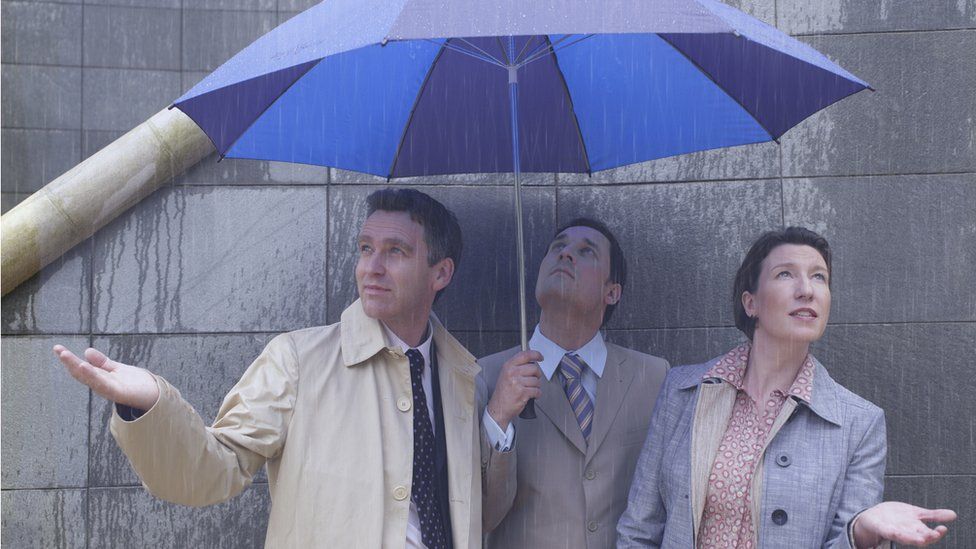What are 'safe haven' investments in stormy markets?
- Published

These are worrying times for investors.
When the markets opened on Friday in the wake of Britain's decision to leave the European Union, the FTSE 100 plunged hundreds of points in minutes, wiping billions off the value of banks, homebuilders and retailers in particular.
There were similar sell-offs in European, US and Asian markets - a $2 trillion (£1.5tn) haemorrhaging.
Although the FTSE recovered some of those losses by the end of the day, it still ended down more than 3% - a huge fall ordinarily.
Sterling experienced its biggest fall for decades, at one point down more than 11% against the dollar.
For a few hours, it seemed like the sky was falling in.
The market turmoil triggered a "flight to safety", as investors looked for calmer waters elsewhere.
But where are these safer investments?
Gold
The precious metal has traditionally been the comfort blanket of choice, with investors clinging to its reassuring solidity and comparative rarity - only about 165,000 tonnes of the stuff has ever been mined.
Throughout human history gold has been synonymous with wealth and luxury - a tangible repository of value - and for hundreds of years was used as a currency in its own right.
Major economies even pegged their currencies to the gold standard, because the metal was seen to be such a stable store of value. The Bank of England gave up on the gold standard in 1931, but the US didn't completely give it up until 1971.
So it is not surprising that gold rose nearly 5% to more than $1,310 an ounce on Friday and has risen 12% over the year to date.
Government bonds
Governments raise money from investors by offering to pay a guaranteed level of interest on bonds - effectively IOUs that must be repaid after a set period, which can be months or decades depending on the type of bond.
In the UK these government bonds are called gilts; in many other countries they're called Treasuries.
This type of investment is deemed to be relatively safe because there's less chance of a country going bust than there is of a company going bust.
Bonds can be bought and sold on the open market and so their price fluctuates according to supply and demand, but the annual rate of interest remains the same. So as more people pile into them looking for safety, prices rise, but the yield - the actual amount of interest you receive - falls.
But that's still better than losing lots of money in shares that are tanking on the markets. The price for safety is usually a lower investment return.
So after the Brexit vote, the US 10-year Treasury bond yield fell to 1.56% while the UK 10-year gilt fell to a record low of 1.02% at one point. It was only the prospect of Bank of England intervention that helped the yield recover to 1.09%.
Other currencies
The British pound took a kicking on Friday - down nearly 8% against the US dollar, nearly 6% against the euro, and a thumping 11% against the Japanese yen - as currency traders dumped sterling and bought other currencies fearing the economic turmoil that might follow the Brexit decision.
While other currencies may seem like a safer investment, governments can intervene in a number of ways to stop their own currencies from growing too strong or too weak. Raising interest rates is one such measure, which means investors earn more interest on their cash, thereby attracting more investment in that currency.
After investors started buying Swiss francs, pushing the currency up 6.6% against sterling on Friday, the Swiss National Bank intervened immediately, effectively flooding the market with its own currency to manage demand. It didn't want its exporters to suffer from a strong franc.
So if you're searching for safer investments, currency speculation is unlikely to help you sleep much better at night.
Cash
Many investors simply sell up and go to cash until a clear picture emerges.
While interest rates are at historic lows - the Bank of England has held the base rate at 0.5% since March 2009 - inflation is also very low at around 0.3%. So investors may be earning miserable rates of interest on cash, but at least high inflation isn't gnawing away at the buying power of that cash.
Of course, selling up has its own risks. You crystallise any losses on your investments and incur dealing charges as well.
But if you think there is more turmoil to come in the markets, stemming your losses may seem like the safest option.
Defensive stocks
When there is a general sell-off in equities (company shares), some sectors are hit harder than others. Housebuilders, for example, took the worst of it in the UK, with Taylor Wimpey crashing 29%, and Barratt, Berkeley and Bellway all falling more than 20%.
Investors assumed a slowdown in economic activity post-Brexit would affect UK construction companies the most.
But other sectors, like mining, bucked the trend as investors sought safety in gold and a weakening pound worked in their favour, given that their earnings are quoted in dollars. Randgold Resources, which operates mainly in Africa, was up 14% on Friday, for example.
Globally spread companies that make a lot of sales abroad, like Unilever, GlaxoSmithKline and Rolls-Royce, for example, are also considered good stocks to cling to in choppy waters.
- Published25 June 2016
- Published24 June 2016
- Published24 June 2016
- Published24 June 2016